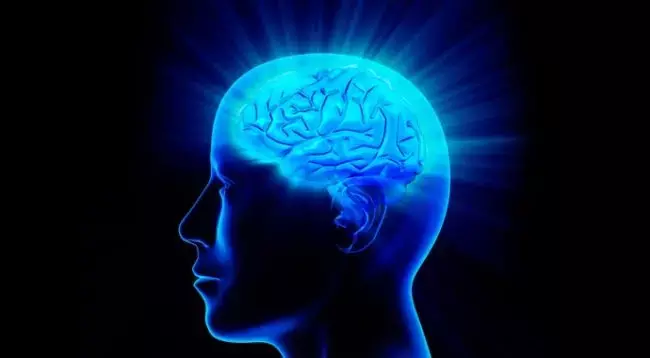- Home
- Medical news & Guidelines
- Anesthesiology
- Cardiology and CTVS
- Critical Care
- Dentistry
- Dermatology
- Diabetes and Endocrinology
- ENT
- Gastroenterology
- Medicine
- Nephrology
- Neurology
- Obstretics-Gynaecology
- Oncology
- Ophthalmology
- Orthopaedics
- Pediatrics-Neonatology
- Psychiatry
- Pulmonology
- Radiology
- Surgery
- Urology
- Laboratory Medicine
- Diet
- Nursing
- Paramedical
- Physiotherapy
- Health news
- Fact Check
- Bone Health Fact Check
- Brain Health Fact Check
- Cancer Related Fact Check
- Child Care Fact Check
- Dental and oral health fact check
- Diabetes and metabolic health fact check
- Diet and Nutrition Fact Check
- Eye and ENT Care Fact Check
- Fitness fact check
- Gut health fact check
- Heart health fact check
- Kidney health fact check
- Medical education fact check
- Men's health fact check
- Respiratory fact check
- Skin and hair care fact check
- Vaccine and Immunization fact check
- Women's health fact check
- AYUSH
- State News
- Andaman and Nicobar Islands
- Andhra Pradesh
- Arunachal Pradesh
- Assam
- Bihar
- Chandigarh
- Chattisgarh
- Dadra and Nagar Haveli
- Daman and Diu
- Delhi
- Goa
- Gujarat
- Haryana
- Himachal Pradesh
- Jammu & Kashmir
- Jharkhand
- Karnataka
- Kerala
- Ladakh
- Lakshadweep
- Madhya Pradesh
- Maharashtra
- Manipur
- Meghalaya
- Mizoram
- Nagaland
- Odisha
- Puducherry
- Punjab
- Rajasthan
- Sikkim
- Tamil Nadu
- Telangana
- Tripura
- Uttar Pradesh
- Uttrakhand
- West Bengal
- Medical Education
- Industry
Psychogenic nonepileptic seizures increase risk of psychiatric disorders in kids: Study

Children and adolescents with psychogenic nonepileptic seizures (PNES) are at higher risk of a wide range of psychiatric disorders, according to a recent study published in the journal Neurology.
Knowledge regarding psychiatric disorders in children and adolescents with psychogenic nonepileptic seizures (PNES) is limited. This study outlines the spectrum and risk of psychiatric disorders in childhood-onset PNES.
A group of researchers performed a nationwide matched cohort study of children and adolescents with PNES 5 to 17 years of age at the time of diagnosis between January 1, 1996, and December 31, 2014. Two matched comparison groups were included: children and adolescents with epilepsy (ES) and children and adolescents without PNES or epilepsy, called healthy controls (HC). Outcomes were prevalent psychiatric disorders before index (i.e., date of diagnosis or corresponding date for HC) and incident psychiatric disorders 2 years after index. Relative risks (RRs) were calculated and adjusted for potential confounders.
The Results are as follows:
They included 384 children and adolescents with validated PNES, 1,152 with ES, and 1,920 HC. Among the cases of PNES, 153 (39.8%) had prevalent psychiatric disorders and 150 (39.1%) had incident psychiatric disorders. Compared to the ES and HC groups, children and adolescents with PNES had elevated risks of both prevalent psychiatric disorders (adjusted RRPNES/ES 1.87, 95% confidence interval [CI] 1.59–2.21, adjusted RRPNES/HC 5.54, 95% CI 4.50–6.81) and incident psychiatric disorders (adjusted RRPNES/ES 2.33, 95% CI 1.92–2.83, adjusted RRPNES/HC 8.37, 95% CI 6.31–11.11). A wide spectrum of specific psychiatric disorders displayed elevated RRs.
Thus, the researchers concluded that children and adolescents with PNES are at higher risk of a wide range of psychiatric disorders compared to children and adolescents with ES and HC. A careful psychiatric evaluation is warranted to optimize and individualize treatment.
Reference:
Psychiatric Disorders in Children and Adolescents With Psychogenic Nonepileptic Seizures by Anne Sofie Hansen et al. published in the Neurology.
Dr. Shravani Dali has completed her BDS from Pravara institute of medical sciences, loni. Following which she extensively worked in the healthcare sector for 2+ years. She has been actively involved in writing blogs in field of health and wellness. Currently she is pursuing her Masters of public health-health administration from Tata institute of social sciences. She can be contacted at editorial@medicaldialogues.in.
Dr Kamal Kant Kohli-MBBS, DTCD- a chest specialist with more than 30 years of practice and a flair for writing clinical articles, Dr Kamal Kant Kohli joined Medical Dialogues as a Chief Editor of Medical News. Besides writing articles, as an editor, he proofreads and verifies all the medical content published on Medical Dialogues including those coming from journals, studies,medical conferences,guidelines etc. Email: drkohli@medicaldialogues.in. Contact no. 011-43720751


